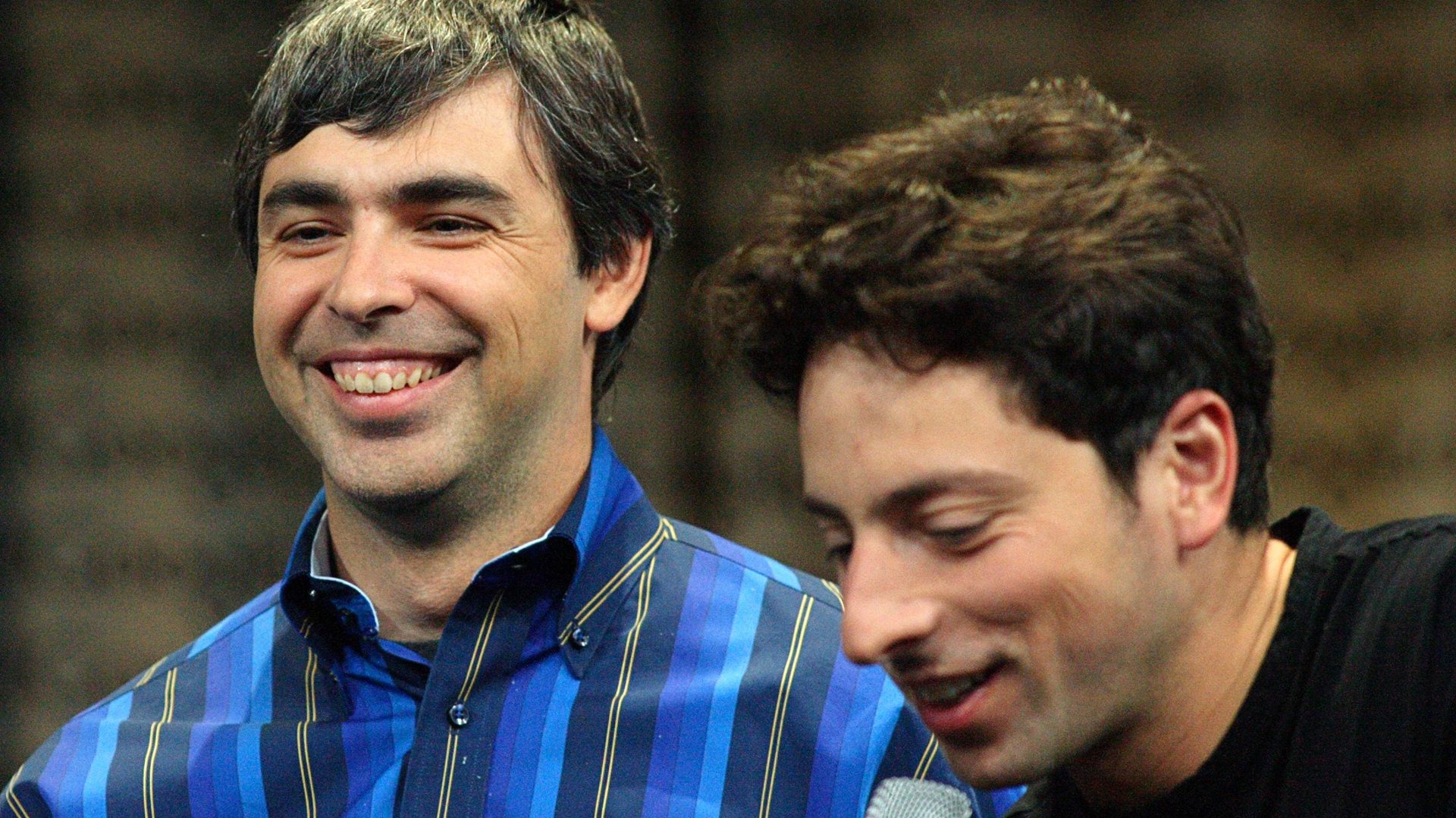Google’s early failure to sell itself shows why we can’t recognize good ideas
A newly published interview with David Cheriton, the Stanford University computer science professor known for writing Google’s second check, offers a reminder about how bad most gatekeepers are at picking out the winners among new ideas. When the Globe and Mail (paywall) asked Cheriton about the original pitch Sergey Brin and Larry Page made to him in 2004, he responded:


A newly published interview with David Cheriton, the Stanford University computer science professor known for writing Google’s second check, offers a reminder about how bad most gatekeepers are at picking out the winners among new ideas. When the Globe and Mail (paywall) asked Cheriton about the original pitch Sergey Brin and Larry Page made to him in 2004, he responded:
Actually, they wanted advice about licensing their search technology to other companies. I’d seen people try that before. The view I take is, you give birth to this baby technology, and you think somebody would like to adopt it because you think it’s beautiful. But it’s very hard to get anyone else to adopt your baby. I told them, “You have to raise your baby yourself.” They came back some months later, and I don’t think they said I was right, but they’d decided to start their own company because nobody was interested in their baby.
Stories like these are irresistible. Maybe it’s the schadenfreude that comes with imagining Silicon Valley investors missing out on a product that would come to be worth billions. Or it’s just that we like to believe that had we been sitting in the room when Page and Brin demonstrated their ranking algorithm, we would have recognized their search technology as genius, history-changing genius.
But studies show that’s just wishful thinking. Had you been an executive at, say, Yahoo, one of the companies that was not interested in PageRank, which became Google, you likely would have made the same mistake. Justin Berg, a professor at Stanford University’s School of Business, calls it a failure of “creative forecasting,” something managers and other decision makers are notorious for. In public lectures on his research, Berg runs through a list of famous rejections: the sitcom Seinfeld, the first Harry Potter book, even the graphical user interface. In literature, there’s a multitude of such examples where editors missed a genre-bending or stylistically fresh new voice.
Berg researched how this happens, finding a rich body of literature explaining the natural biases against creativity and innovation that exist in most of us, and are not completely irrational. Novel ideas actually make us “deeply uncomfortable,” scholars have found, even when we believe we welcome them. Our inclination to avoid risk means managers are unlikely to endorse an idea that doesn’t resemble any that came before it. It’s safer not to jeopardize your reputation as someone who can be trusted with the company’s time and money.
But Berg wanted to answer a different question about creativity within organizations. He wanted to find out who was good at spotting strong, imaginative ideas, and why, so he began by studying artists and circus managers at Cirque Du Soleil, analyzing their predictions about which new acts introduced by performers would be most appreciated by audiences. Berg found that the artists, and not the managers, had a better sense of when they were watching a future hit. As Adam Grant explained in an Aspens Ideas speech that covered Berg’s findings, fellow artists “are much more likely to say, ‘What are the reasons that I should consider this idea?’ as opposed to, ‘Why should I walk away from it?’”
Sadly for managers, it seems there’s something about the role itself that can close the mind. This is true even for students asked to think like managers, Berg found in lab studies. But there’s also famous proof of this in an anecdote about another early Google investor, Jeff Bezos, founder of Amazon. When he visited Harvard Business School in 1997, he was told by the students in a class called “Managing the Marketspace” that he ought to sell Amazon to Barnes and Noble. In his book, The Everything Store, Brad Stone explains that the Harvard students believed Amazon would be squashed by more established brands when they moved online. They were obviously bright students, but also human. They sided with the known.
On a more optimistic note, however, Berg also found that students playing “managers” got better at a creative forecasting task when they took on the role of of “creator,” for even five minutes, by spending some time generating new ideas before listening and judging those of peers. In other words, company executives, editors, producers—all the gatekeepers of the world—ought to make research and innovation part of their jobs. Exactly the way professors like Cheriton do.